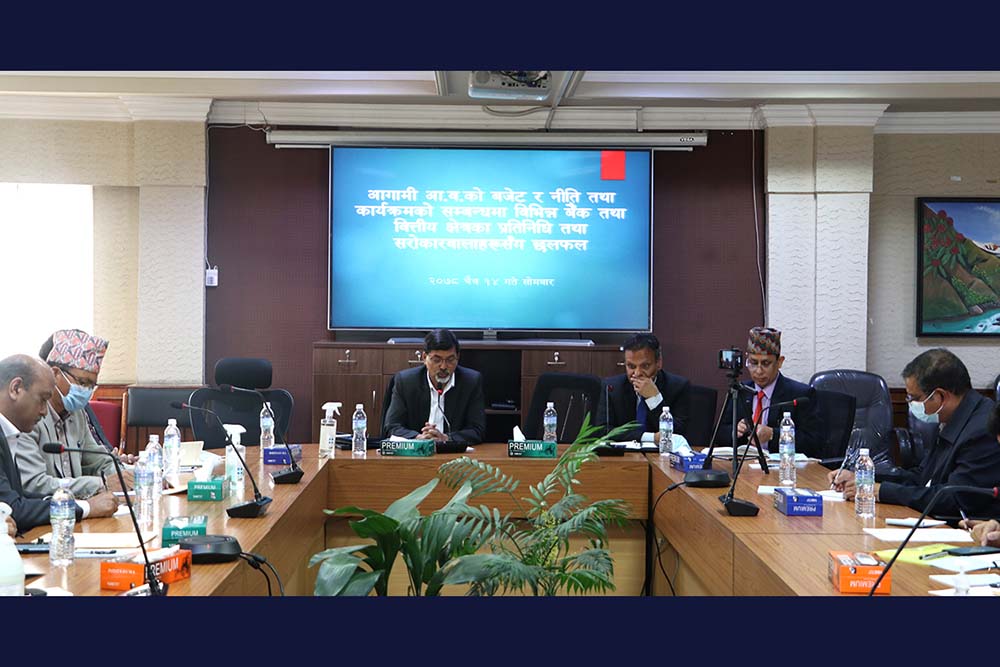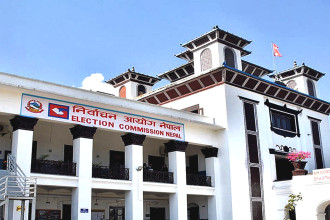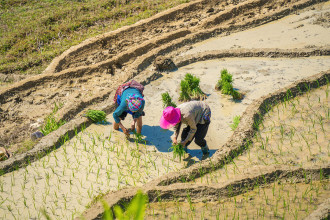
KATHMANDU: The Ministry of Finance on Monday held discussions with stakeholders of banks and financial institutions (BFIs) and the insurance sector to take suggestions on the issues to be included in the policies and programmes, and budget for the coming fiscal year 2022/23.
On the occasion, Finance Minister Janardan Sharma said the discussion was being held to take suggestions from BFIs and the insurance sector for formulating the budget for the coming fiscal year. He said, previously, discussions had been held with agriculture, federal finance, education, private sectors and others.
During the discussion, Finance Minister said he was thinking of setting up a microfinance fund so that people could get loans at low interest rates. He expressed his dissatisfaction that people or groups involved in the banking sector were also found involved in other businesses and suggested some amendments to it and also asked for suggestions.
Moreover, the minister also expressed his dissatisfaction over the deposit and withdrawal of cash in the current system of banking. He said, "There is a problem in depositing money in the bank and also a problem in withdrawing it. My study shows that a lot of money is stuck at home," Minister Sharma asserted. He suggested the BFIs carry out their operation and activities transparently.
On the occasion, former Vice-Chairman of National Planning Commission (NPC), Min Bahadur Shrestha, suggested the government attract foreign investment in the share market. He said the government's huge investment in insurance in agriculture sector was not fruitful. He also suggested improving the national economy by regulating hyper funds, cryptocurrencies and interest rates.
Likewise, former Vice-Chairman of NPC, Dipendra Bahadur Chhetri, said agricultural credit has been invested in the areas where industries and agricultural commodities are imported, it should be made accessible to the real farmers instead. Stating that he has heard rumours of banning banknotes to solve the liquidity problem, he said if this is true then it could be challenging because 21% of the banknotes in the market are of Rs 500 denomination and 71% of Rs 1000 denomination.
During the discussion, Anil Sah, former chairman of Nepal Bankers' Association, suggested that new arrangements should be made like re-enter permission system for migrant workers to increase the import of remittance. "The government can keep a record of the number of migrant workers leaving for foreign employment, and their salaries, " he suggested and stressed, "Provision must be made for migrant workers to send certain percentage of their earnings through remittance or banking system. If the money is not remitted through official channels as per the limits set by the government, there should be cancellation of their re-entry to foreign countries. This measure would at least reduce the 'hundis' being illegally operated, and increase remittances," argued Sah. He also said that everyone should be concerned about improving the balance of payments.
Similarly, Confederation of Commercial Banks and Financial Institutions Nepal (CBFIN) President Pawan Kumar Golyan opined that if women could deposit or withdraw up to Rs 1.5 million without any condition it could help in women empowerment.
Similarly, other representatives of BFIs and insurance sector who were present at the discussion, suggested the government implement bancassurance, create insurance fund, set up 'support centre' to facilitate bank services in all provinces, and create environment for the development banks to focus on small investment and for commercial banks to invest only in big projects.
READ ALSO:
Published Date: March 29, 2022, 12:00 am
Post Comment
E-Magazine
RELATED B360 National





